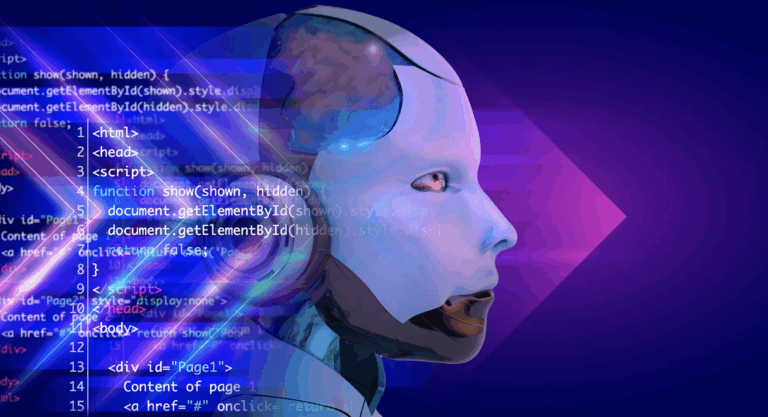Introduction:
In the fast-paced world of artificial intelligence (AI) and machine learning, the demand for qualified AI coaches and trainers has risen sharply. These experts play a crucial role in helping organizations unlock the full potential of AI and successfully integrate it into their business processes. But what does it take to be an effective AI coach or trainer?
The question of required competencies and qualifications is of great importance, especially as organizations increasingly seek valid proof of acquired skills. The option of comparability, for example through a competency examination, is seen by organizations like QUCONS (Quality and Consulting Services) as an important step to ensure that clients receive reliable proof of their AI coach’s or trainer’s expertise.
In this context, the discussion about the essential competencies of an AI coach or trainer is becoming more and more relevant. Beyond learning prompts and technical skills, a wide range of other factors are critical for acting effectively in this role. From client communication to didactic expertise and an understanding of ethical issues in AI — the requirements for an AI coach are diverse and demanding.
In this and future articles, we will explore in detail the various competencies an AI coach or trainer needs to be successful. We will place particular focus on how comparability of acquired skills through a formal competency exam can add value for both clients and organizations.
Let us begin with a simple list of learning objectives
that are essential from a client’s perspective.
An AI coach or trainer needs a wide range of competencies in addition to learning how to craft prompts. Here are some of the most important skills and areas of knowledge an AI coach should develop:
Understanding of AI Fundamentals:
A deep understanding of the fundamentals of artificial intelligence is essential for every AI coach or trainer. This includes knowledge of various AI technologies such as machine learning, neural networks, natural language processing, and more. The coach should understand how these technologies work, be aware of their strengths and weaknesses, and know how they are applied across different industries. Recommended resources include online courses from platforms such as Coursera, edX, or Udacity, and books like Artificial Intelligence: A Guide to Intelligent Systems by Michael Negnevitsky.
Problem-Solving Skills:
An AI coach/trainer must have excellent problem-solving skills to tackle complex challenges associated with AI. This requires the ability to identify issues, develop appropriate solutions, and implement them effectively. The coach should be able to find creative approaches and quickly adapt to changing conditions. Developing these skills is best achieved through hands-on experience in projects and case studies, as well as collaboration with other experts.
Communication Skills:
Strong communication skills are essential for an AI coach/trainer, as they must interact with diverse stakeholders, including technical teams, executives, clients, and end users. The coach must be able to clearly and understandably explain complex technical concepts and address questions and concerns. Furthermore, they should convey information precisely and foster an open, supportive communication environment. Training in communication techniques and practical exercises such as presentations and workshops can help enhance these skills.
Project Management:
A solid grasp of project management practices is crucial for planning, coordinating, and executing AI implementations successfully. This includes setting project goals, managing resources, creating timelines, and monitoring progress. The coach should also be able to identify risks and take appropriate mitigation measures. Certifications such as Project Management Professional (PMP) can help develop and validate project management competencies.
Knowledge of Ethical AI:
Ethics is becoming an increasingly important aspect in the development and use of AI technologies. An AI coach/trainer should have a strong understanding of ethical AI to ensure that AI systems are developed and applied responsibly and in alignment with ethical principles. This includes issues such as fairness, transparency, data privacy, and accountability, as well as the ability to put these principles into practice. Helpful resources include the Ethics Guidelines for Trustworthy AIby the European Commission and research from organizations such as the AI Ethics Lab and the AI Now Institute.
Willingness to Learn:
Given the continuous evolution of AI technologies, a strong willingness to learn is vital for any AI coach/trainer. Coaches must stay up to date by reviewing the latest research, attending trainings and conferences, and gaining hands-on experience with emerging technologies. This demands an openness to new knowledge and a readiness to question existing assumptions and practices. A strong learning network and regular exchanges with other experts can help foster a continuous learning mindset.
Empathy and Interpersonal Skills:
Empathy and interpersonal skills are crucial for AI coaches/trainers, as they work with people from various backgrounds. A coach must be able to understand others’ perspectives and respond empathetically to their needs. They should also be able to communicate effectively, resolve conflicts, and create a supportive work environment. Training in emotional intelligence and conflict management can help develop these soft skills.
Client Interaction Competence:
An AI coach must be able to communicate effectively with clients and other stakeholders. This involves active listening to understand the client’s needs and requirements, as well as the ability to provide clear explanations and respond to questions. A good AI coach builds trust by maintaining an open and supportive relationship and ensuring that client concerns and goals are addressed.
Didactics and Teaching Methods:
An AI coach should have didactic skills to design effective learning processes. This includes understanding various teaching methods and techniques and being able to develop instructional materials that support learning objectives. A strong coach tailors their methods to the learner’s needs and uses a variety of approaches to ensure an optimal learning experience.
Goal-Oriented Learning:
Goal-oriented learning is a key aspect of AI coaching. An AI coach should be able to define clear learning objectives and continuously monitor learners’ progress to ensure those goals are met. This requires close collaboration with learners to understand their individual objectives and adapt the learning process accordingly.
By combining strong client interaction skills, deep knowledge of didactics and teaching methods, and a focus on goal-oriented learning, an AI coach can effectively help clients develop the competencies needed to successfully work with artificial intelligence. This contributes significantly to the success of AI projects and helps organizations fully leverage the power of AI.
Here is more about our Participation Models:
We can confirm that all project contributors of QUCONS UG have been trained or certified in the 10 competencies mentioned above. Everyone who works with us is expected to help pass on this knowledge.
You can find more on LinkedIn:
Thomas Werner | LinkedIn





